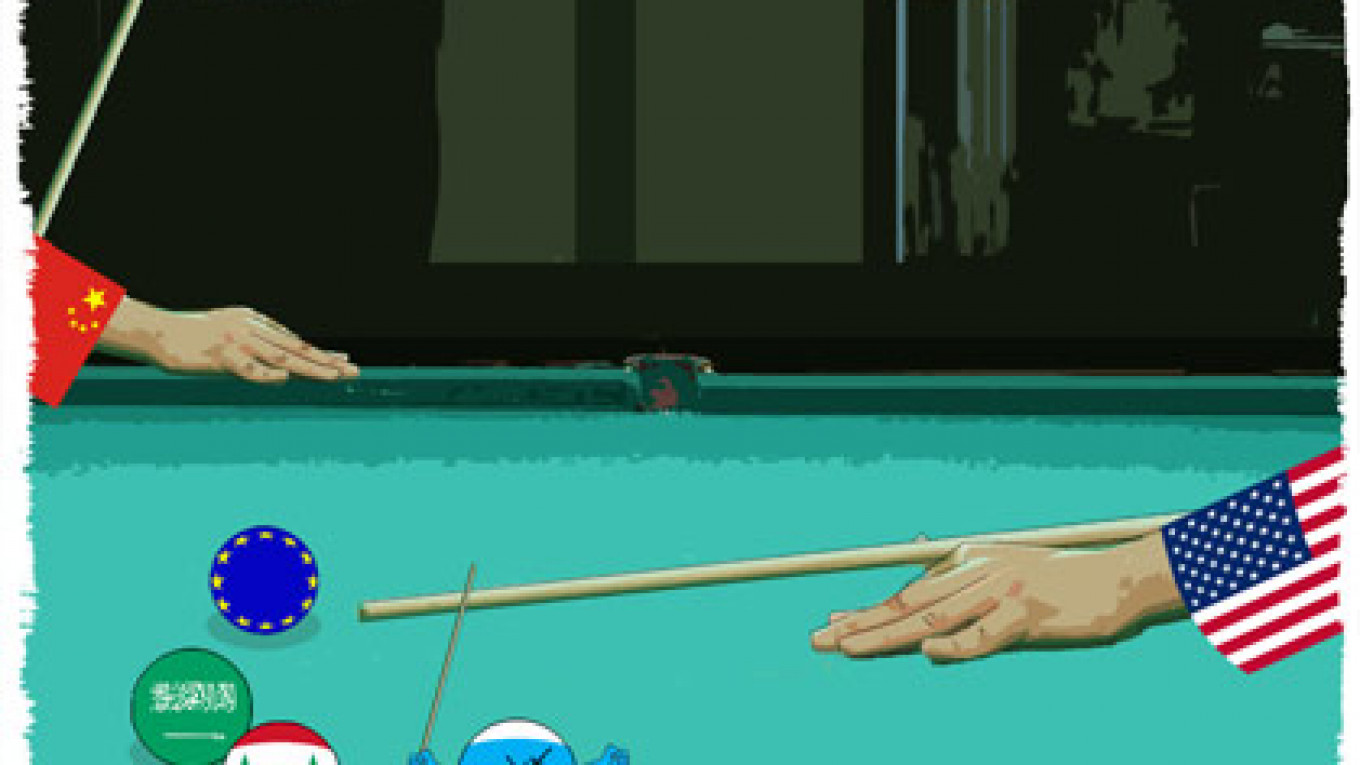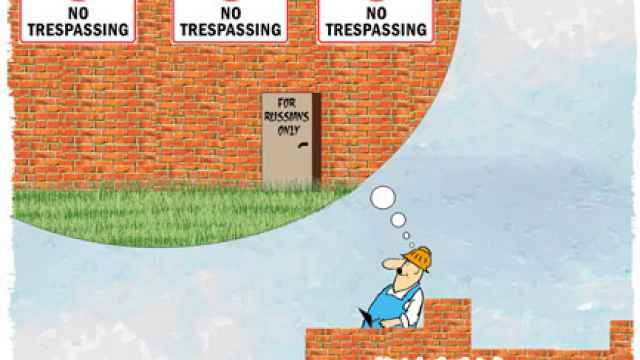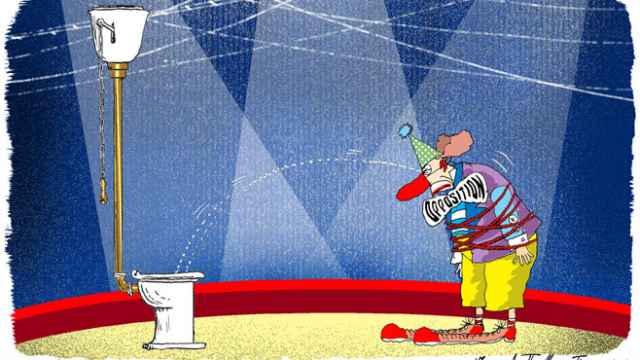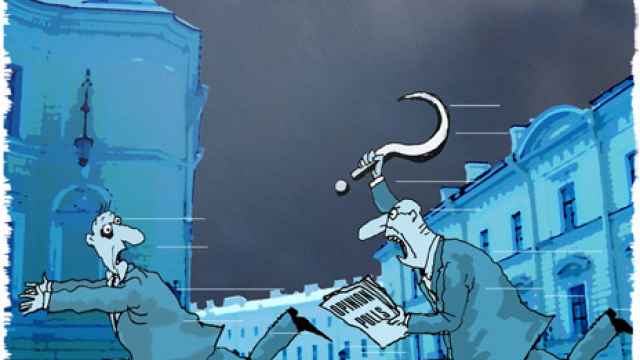Russian media might have somewhat exaggerated just how much the world was holding its breath in anticipation of President Vladimir Putin's speech to the anniversary session of the United Nations General Assembly on Monday. The speech, which lasted only about 25 minutes, will hardly go down in history as a thrilling, emotional and substantial address. However, it did contain a sufficiently weighty proposal that does deserve attention.
Speaking for Russia, Putin voiced his two-point proposal for the Middle East. First, the regime of Syrian President Bashar Assad is legitimate, and all discussions regarding the situation in that country must be directed to him. Second, the Islamic State is the leading enemy of mankind, and Russia is prepared to join forces with everyone who shares that point of view in the battle against it.
Critics of the Russian president saw this as an attempt to divert attention away from Crimea and Russia's intervention in Ukrainian affairs. But even if that is true, what steps should the world take now?
Despite the fact that the modern world is trying to pretend it follows a far more humane code of political ethics than was in force before, say, the end of World War II, many behaviors remain the same — perhaps simply because nothing new has been invented yet. Among the holdovers from that era is the division of the world into nation-states, each of which enjoys sovereignty and its own notions of national interest.
What's more, as most modern political science textbooks in the West explain, each of those states recognizes that other states also exist and have their own national interests. Those states pursue their respective interests to form various alliances and pacts, as if arranging billiard balls into various configurations on a pool table.
However, this metaphor of political realism has one shortcoming: with the Soviet Union and the United States no longer "calling all the shots" in this game, who are the players that decide on the various configurations?
There are a variety of ways to answer that. For example, Putin seems to feel there is only one big player left in the game — the United States — and that Russia is now just another billiard ball among others. It's tough to make the psychological transition from major player to ordinary game piece — a task Britain faced to some extent following World War II — and the same challenge is troubling Russia today.
Other countries might view the situation differently. Many in the U.S. might feel that the goal of being the only player at the table remains unattainable — despite Russia reverting to a simple billiard ball — because China has made the transition from nondescript ball to major player.
And what about Europe? Is it a cluster of billiard balls of various sizes, a single large ball or a new player at the table? Some more idealistic observers might claim that there are not now, and possibly never were any "big players," and that each ball is the master of its own destiny, or else follows trajectories determined by its contact with other balls.
Either way, political realism continues to dominate international relations. If you are one of those who believe that, by annexing Crimea, Russia acted as a revisionist state and violated the status quo, then you are also a political realist.
According to the logic of political realism, it is natural to offer an opponent something he values more than whatever prompted his revisionist actions. That is one way to avoid direct confrontation, especially when such a confrontation would prove disastrous to national interests. When a country is unwilling to fight, it must offer something that will enable it to avoid losing everything. That is a sensible and realistic approach for any country to take.
And now Putin has proposed that Russia help reach a settlement in Syria. At first glance, it is a bold attempt to restore Russia's image at a time when sanctions have put it at a considerable disadvantage. It is also an attempt to partially repeat Moscow's success of 2013-14. At that time, the world community disliked the way Putin retook the presidency in 2012 as well as the government's harsh crackdown on political protesters.
That all looked very bad when set against Moscow's plans to invite the world to the glorious Winter Olympics in Sochi in 2014. The Russian proposal that Syria destroy its chemical weapons was a brilliant diversion that removed the direct threat to Assad's regime, revived Russia's status as a world player and almost completely dispelled the image-darkening clouds gathering over Sochi.
The problem is that now, 18 months later, a great deal has changed, starting with the fundamental question that Russia must resolve. This time it is not about the government's image and not about the Olympics, but about finding a way to extricate Russia from international isolation that arose as a direct result of the actions taken by its leaders.
The attempt to free himself from that situation by playing a bold, Realpolitik card indicates that Putin is an ambitious gambler who is capable of proposing tactical solutions to a problem even when he finds himself in a nearly hopeless situation.
The only problem is that the card Putin played — and on which he has staked his country's future — is not an ace, but a deuce.
Even if Russia were to redouble its military presence in the Middle East, it does not have a presence in the region that would enable it to dictate its own terms to a Syrian solution, one that would add to Moscow's prestige in international affairs.
The problem is not that Russia's rhetoric against the Islamic State is too obviously shaded by Putin's desire to ensure the protection of Assad's regime, no matter what the world community might say against it. The problem is that Russia already has a subversive terrorist war in its own backyard — the North Caucasus, where outbreaks of violence occasionally spill over into the Volga region and even Moscow.
According to the Russian Security Council, approximately 2,000 Russian citizens — mostly from the Caucasus and Volga regions — are currently fighting for the Islamic State. What's more, many of Russia's more than 15 million Muslims, although not considering themselves fighters in that cause, do sympathize with those who are.
By having Putin appear at the opening of the huge new mosque in Moscow on Sept. 23, just prior to his trip to New York, the authorities tried to show that this government has no problems with Russian Muslims. However, many members of that community hate Syrian President Bashar Assad, and the Kremlin's efforts to support that regime could spark what until now has been only terrorist rhetoric — a war with the Islamic State on Russian territory.
The Islamic State is indeed a common enemy to both Russia and the West, and possibly far more than Putin realizes.
Ivan Sukhov is a journalist who has covered conflicts in Russia and the CIS for the past 15 years.
A Message from The Moscow Times:
Dear readers,
We are facing unprecedented challenges. Russia's Prosecutor General's Office has designated The Moscow Times as an "undesirable" organization, criminalizing our work and putting our staff at risk of prosecution. This follows our earlier unjust labeling as a "foreign agent."
These actions are direct attempts to silence independent journalism in Russia. The authorities claim our work "discredits the decisions of the Russian leadership." We see things differently: we strive to provide accurate, unbiased reporting on Russia.
We, the journalists of The Moscow Times, refuse to be silenced. But to continue our work, we need your help.
Your support, no matter how small, makes a world of difference. If you can, please support us monthly starting from just $2. It's quick to set up, and every contribution makes a significant impact.
By supporting The Moscow Times, you're defending open, independent journalism in the face of repression. Thank you for standing with us.
Remind me later.






